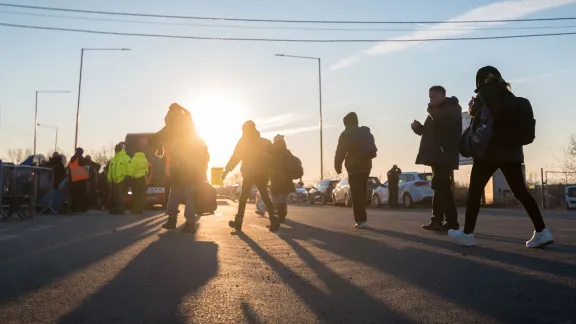
Refugee families from Ukraine make for the bus that is to take them from the Vyšné Nemecké border crossing between Slovakia and Ukraine and further into Slovakia, on 11 March. The Vyšné Nemecké border crossing connects Slovakia with the city of Uzhgorod in Ukraine. The crossing sees up to some 10,000 refugees arrive each day since Russia began its invasion of Ukraine. A range of faith-based, civil society and humanitarian organizations provide immediate support to refugees as t
LWF member church in Slovakia welcomes refugees from Ukraine
LWI – As refugees from Ukraine continue to pour into the country by the thousands each day, the Evangelical Church of the Augsburg Confession in Slovakia is opening its arms to welcome those in need.
By 23 March, UNHCR figures indicated more than 260,000 refugees had crossed the Ukrainian border into Slovakia. At the largest Ukrainian-Slovak border crossing, Vyšné Nemecké, an array of emergency support awaited them – providing for the most basic needs by means of hot drinks, soup, hygiene items, clothing, warmed up tents for a moment of rest, and volunteers working to match refugees with accommodation options all over Slovakia.
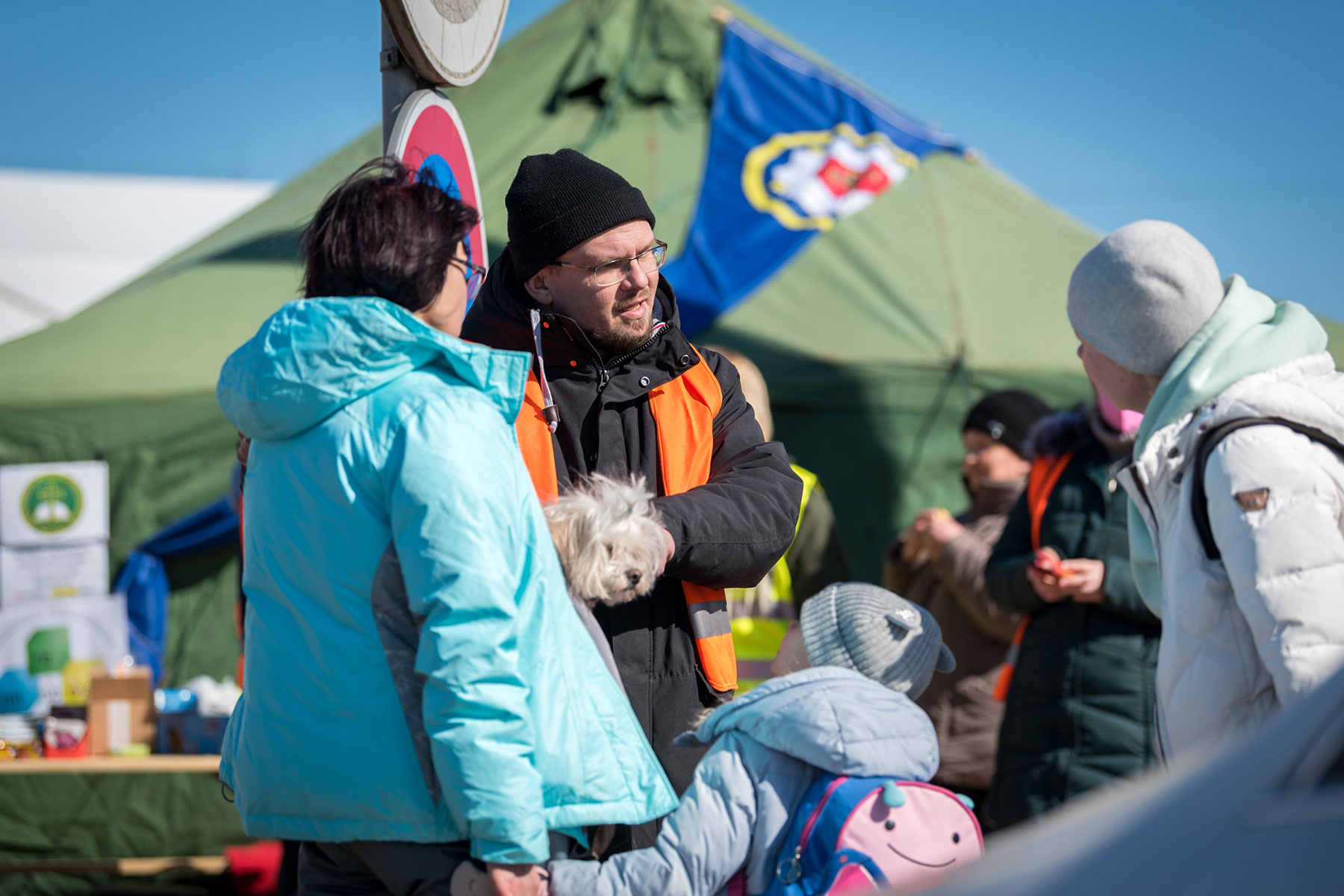
A volunteer shares information with a recently arrived refugee family at Vyšné Nemecké.
Patrik Purchart is one among dozens of volunteers serving the Lutheran Diacon tent at Vyšné Nemecké by rotating 12-hour shifts – day and night. Here, refugees can find space to rest and warm up, something hot to drink, and find someone to guide them around the ‘tent city’ of support stations that has emerged around the border crossing.
“The situation really is quite desperate,” Purchart explains. “We see some people arrive who have just been running away from bombs falling, and who come sometimes without even a second pair of underwear.”
He continues, “Yesterday I helped a small girl. She couldn’t find her mother, so she asked me ‘where is my mother?’. The second question was ‘Is my mother alive?’.”
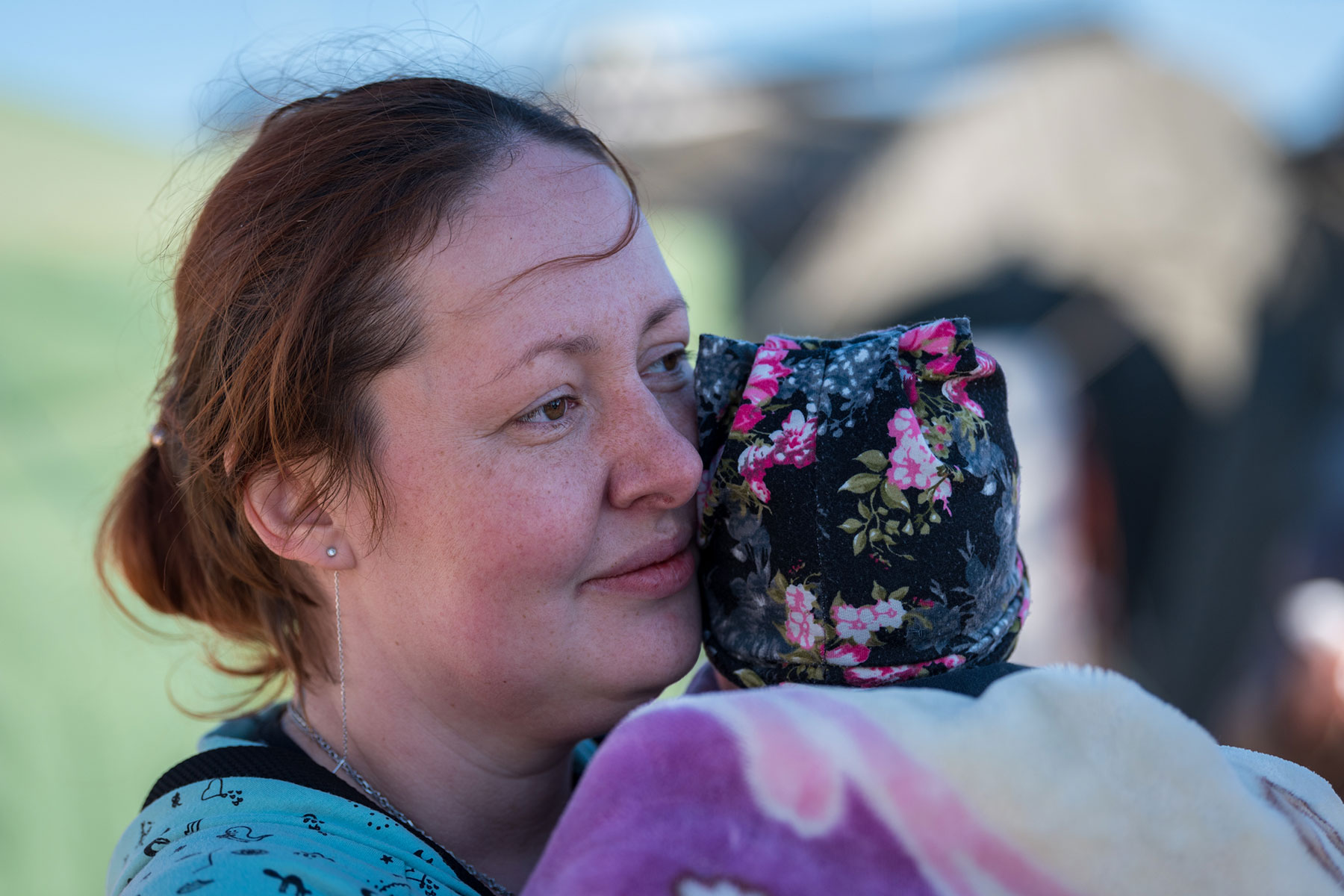
Maria Bychko from Charkiv has arrived at the Vyšné Nemecké border crossing in Slovakia with her six-month-old child. She says it was terrible to have go to exile, to leave the world she knew behind, but with her home city being destroyed by the bombs, she left as she was afraid for her child.
With a rapid response comes the risk of lack of coordination, something that was addressed early at Vyšné Nemecké, Purchart explains.
“Everyone tries to do something, and it’s crucial in this situation that we don’t duplicate the work. It shouldn’t matter whose name is on the box. What is important is that the refugees get something to eat,” Purchart states, explaining that each tent seeks to provide something different.
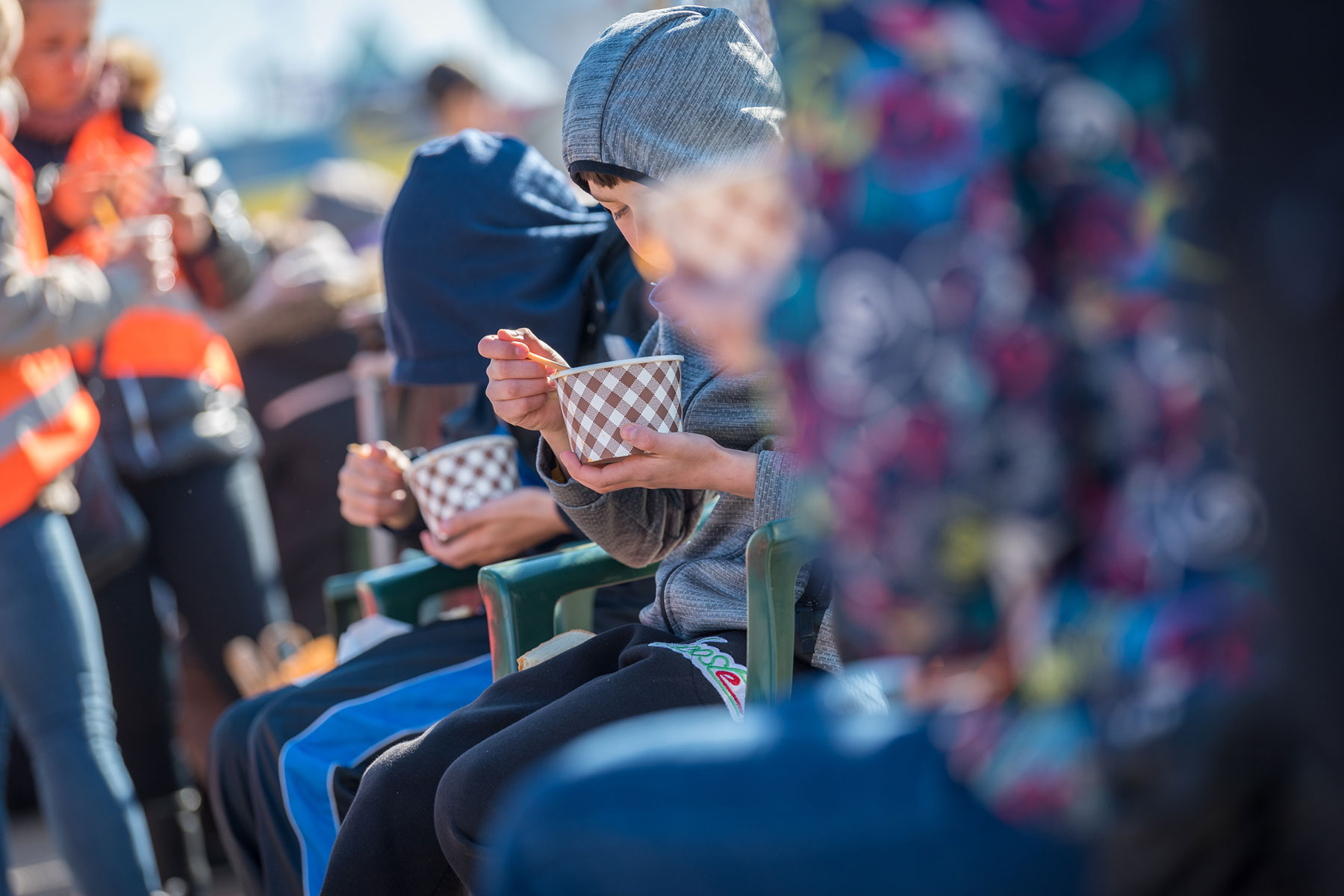
A family eats a meal of soup at the Vyšné Nemecké border crossing between Slovakia and Ukraine.
Testifying to the Gospel - with open arms, homes and churches
At the Lutheran Church in Partizánska Ľupča is a small congregation with a long history, who has responded to the refugee situation by collecting financial donations, arranging accommodation in connection with the centuries-old parsonage, and welcomed refugees into congregants’ own homes.
With a membership of 150 faithful, the congregation today hosts 82 Ukrainian refugees – 22 of them housed adjacent to the parsonage, and 60 of them in congregants’ homes.
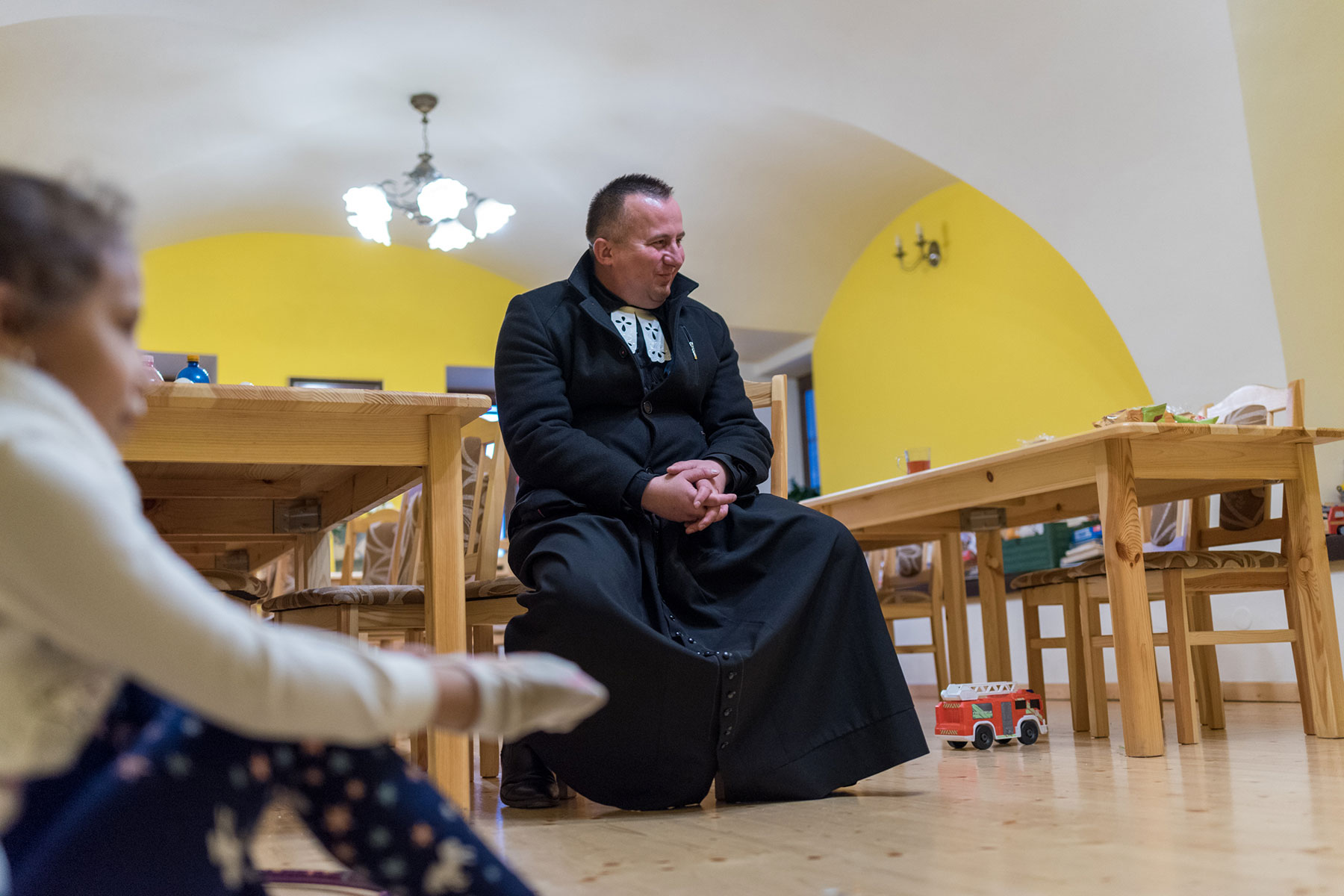
Rev. Jan Molcan of the Evangelical Lutheran Church in Partizánska Ľupča looks on as Ukrainian refugee children are playing in their home in the parish.
“This time is a test of our faith, not just in word but also in action,” says local pastor Rev. Jan Molcan. “The people of my congregation are very down to earth, they may not be very biblically well-versed, but they understand the meaning of the gospel. They are helping without question.”
The arrival of the refugees has also brought about an unexpected encounter of traditions at church.
“Some of the refugees came to church on Sunday bringing with them an icon, because they are Orthodox. I placed the icon on the altar and said ‘welcome, this is your church now too’. We have now moved the icon so it sits on the baptismal font. This way, they can kneel before it as they come to church. But also, in Baptism we are all one family,” Molcan says.
![]()
An orthodox icon sits on the baptismal font in the Evangelical Lutheran Church in Partizánska Ľupča. The icon has been brought to the church by Ukrainian refugees currently hosted by families in the congregation, and the local pastor has placed it on the baptismal font as a token of hospitality to the refugees, and as a symbol that 'in baptism we are all one family'.
‘We never thought there’d be war’
At the Lutheran Church in Poprad, a group of families with children with disabilities have found refuge.
Tatiana (Tanya) Radchuk, together with her husband and their daughter, were able to flee from their home in Bila Tserkva with support from the Red Cross.
“I kept saying ‘there is no way there can be war’, and my husband just said ‘you just wait and see, it can happen’”, Radchuk says and continues: “We were a mixed city of Russians and Ukranians. There was no problem, we were just friends, living together. We were brothers and sisters.”
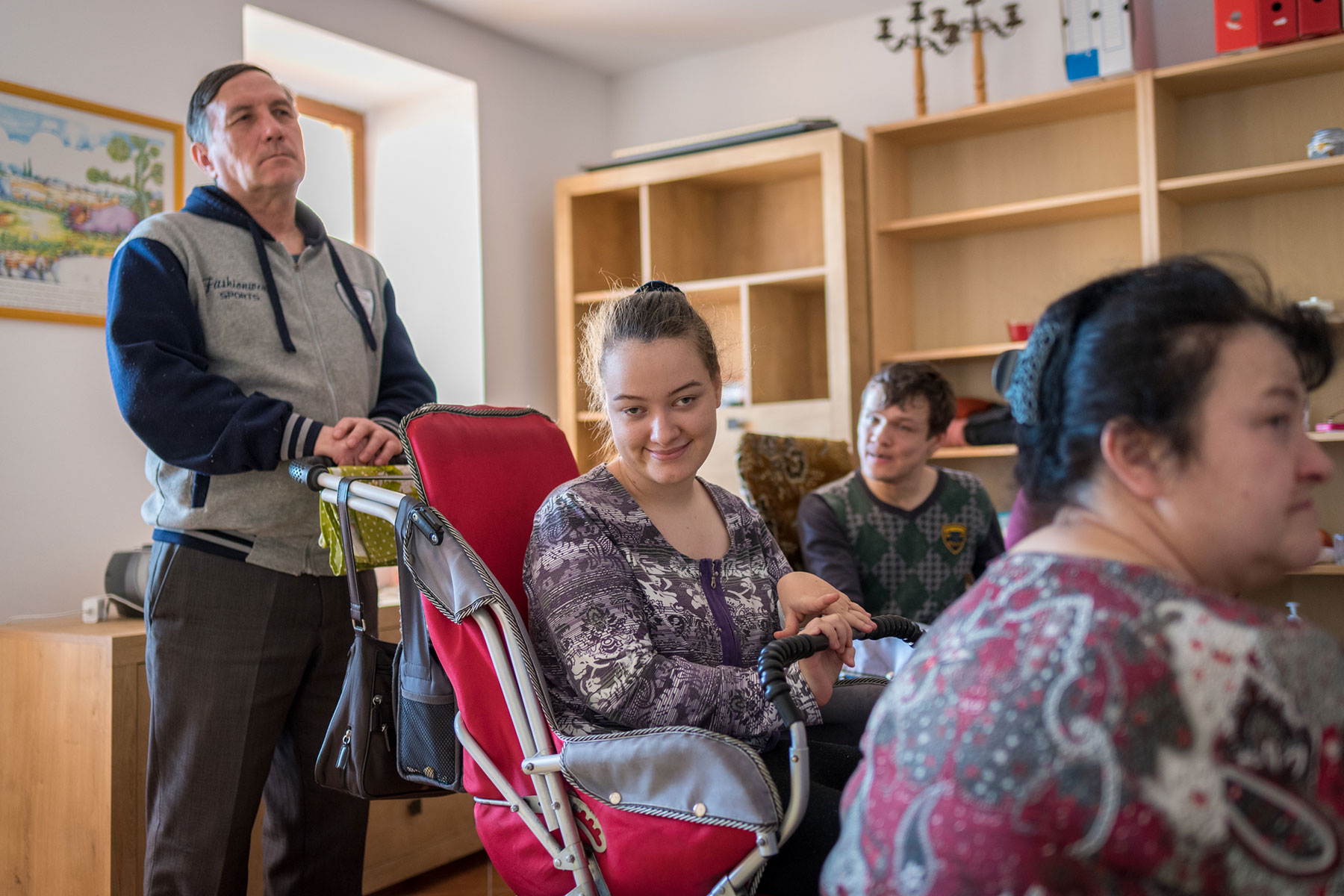
Twenty-year-old Anna Radchuk (mid-left) together with her father Misha (left), mother Tatiana (right) and her 34-year-old friend Andrej (mid-right) at their accommodations in Poprad.
“The first boom, the missile when it hit, I thought nothing of it. But the second one, I looked out to see what was happening. The third one made me realize, ‘oh my God, they are literally bombing us’,” she reflects. “The children are asking now when we can go home, and if they will kill us if we go home.”
To Jana Kovalcikova, manager of a youth center in nearby Veľký Slavkov where more than 30 refugees are now staying, the response by the local communities in the area is a miracle.
“Our friends and our community responded very fast and immediately. We needed a washing machine, some hygiene stuff, and they brought it. Someone was able to do some shopping for us. It’s like a miracle, because now we can cook for them, and we can provide them with what they need,” Kovalcikova says.
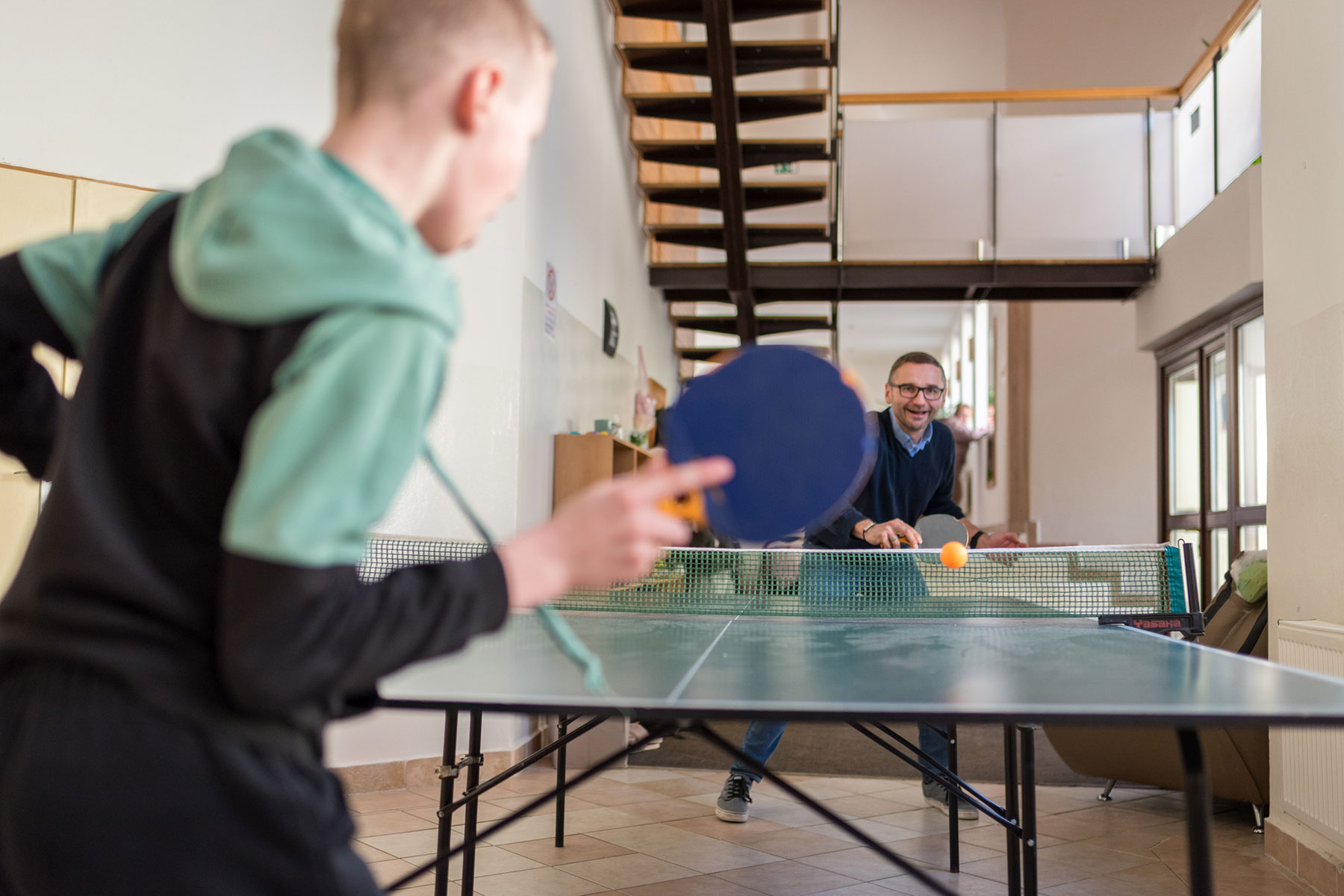
10-year-old Ukrainian refugee Volodymyr plays tabletennis with Slovakian-born pastor Rev. Drahus Oslik, at the repurposed youth centre in Veľký Slavkov.
Seeing ‘Christ alive’ in the faces of refugees
And from Eastern district Bishop Peter Mihoc, whose office coordinates accommodation for refugees in parishes all over the country, the focus of this year’s Lenten season is clear.
"Our fasting this Lenten season shall be about helping those who are in need, like some are already doing: handing out a warm cup of tea at the border, getting up in the middle of the night to pick up and drive people from the border, or opening up their own homes,” the Bishop said preaching to the congregation in Pozdišovce on earlier this month.
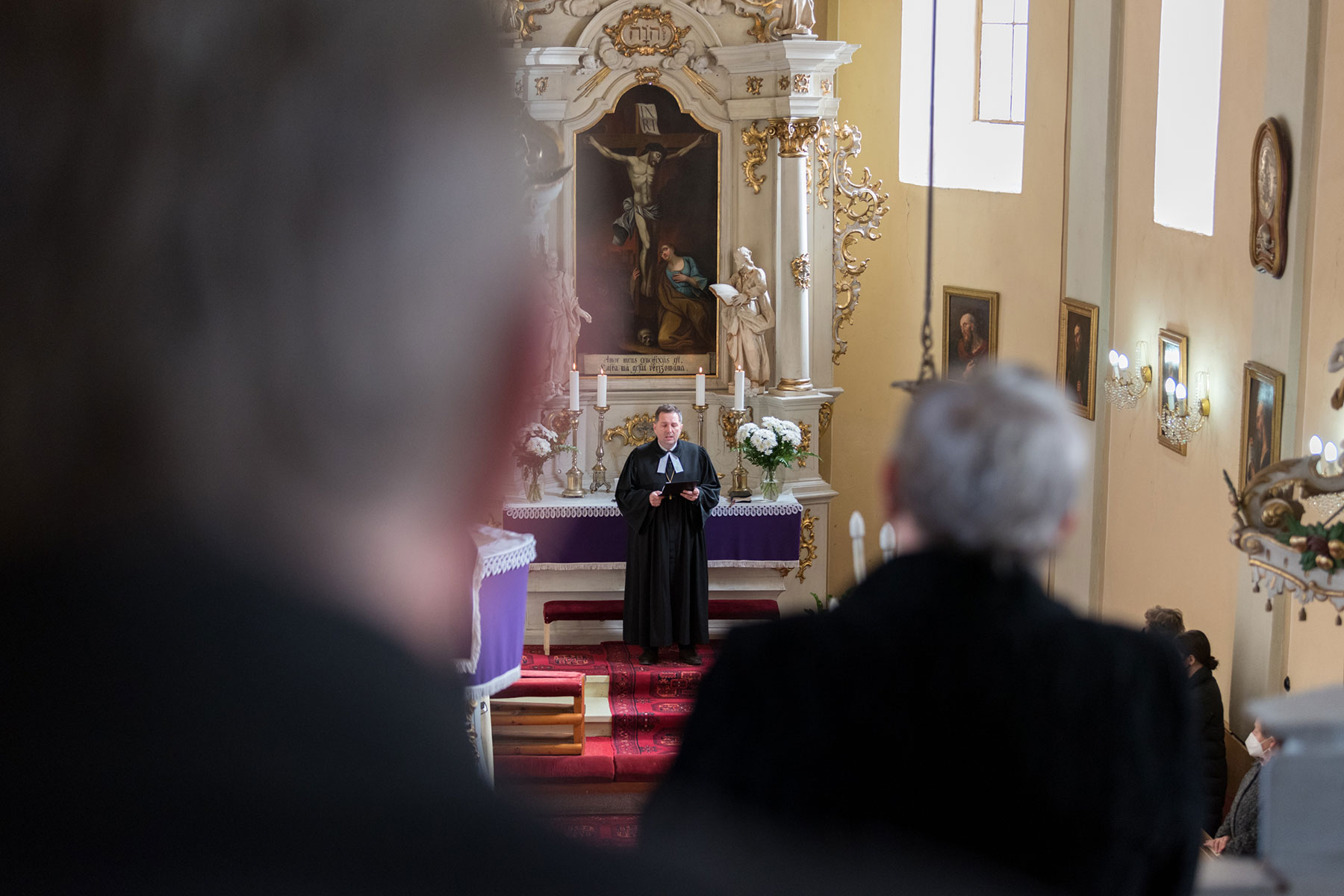
Bishop Peter Mihoc of the Evangelical Church of the Augsburg Confession in Slovakia (Eastern district) shares a word of prayer for Ukraine during Sunday service in Pozdišovce, Slovakia. Pozdišovce is the closest to the Ukrainian border of all the church’s congregations, and so the church here plays a key role in supporting incoming refugees fleeing the war in Ukraine into Slovakia.
Turning to this the easternmost congregation of his church, Mihoc reflected, “We see in the faces of the Ukrainian refugees, Christ alive. We see the suffering Christ who has journeyed because of the pride of those behind the attacks.”
“This is the time to not just wear the cross on our chests as a symbol that we are Christian, but to carry the cross on our backs, by carrying the burden of those who are suffering," the bishop concluded.
Written by Albin Hillert. All photos: LWF/Albin Hillert
LWF's is coordinating a response through its member churches in Ukraine and the neighboring countries to ensure support to Ukrainian refugees as well as their safe and dignified arrival. The work is supported by LWF's funding partners, including the Evangelical Lutheran Church in America.


